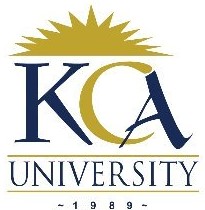 UNIVERSITY EXAMINATIONS: 2017/2018
UNIVERSITY EXAMINATIONS: 2017/2018
EXAMINATION FOR THE DEGREE OF BACHELOR OF SCIENCE IN
INFORMATION TECHNOLOGY
BIT2307 GEOGRAPHIC INFORMATION SYSTEMS
FULL TIME/PART TIME/ DISTANCE LEARNING
DATE: APRIL, 2018 TIME: 2 HOURS
INSTRUCTIONS: Answer Question One & ANY OTHER TWO questions.
QUESTION ONE (COMPULSORY 30 MARKS)
a) Using examples describe three common applications of GIS in society today.
(6Marks)
b) Explain the following terms with reference to geographic information systems;
(i) Layer (2Marks)
(ii) Plug in (2Marks)
(iii) Attribute table (2Marks)
(iv) Transparency (2Marks)
c) Beside the production of maps, the GIS also perform geospatial analysis. Give
Examples of these analyses (5Marks)
d) Attribute data stored in the GIS consists of three basic types. Name any two of these
(2Marks)
e) Explain how each of the following is performed in Qgis:
i) Setting the transparency of a raster image (3Marks)
ii) Creating a new vector layer (3Marks)
iii) Georeferncing a raster image (3Marks)
QUESTION TWO (20 MARKS)
a) Discuss the problems that can be experienced when handling spatial data manually as
Opposed to using geographic information systems (6Marks)
b) Many GIS applications are in existence today, both commercially and in open source.
List the various types of these applications (4Marks)
c) Give the meaning of the following abbreviations as used in GIS
i) OTF (2Marks)
ii) DEM (2Marks)
iii) CRS (2Marks)
iv) GPS (2Marks)
v) CAD (2Marks)
QUESTION THREE (20 MARKS)
a) Explain three methods that can be used to query a GIS project (6 Marks)
b) i) Define digitizing as used in GIS projects (4Marks)
ii) Describe the steps involved in the creation of a GIS database (7Marks)
iii) Define internet GIS using examples (3Marks)
QUESTION FOUR (20 MARKS)
a) Explain the use of a topographic map in GIS projects (2Marks)
b) Explain the three major elements that characterize topology (6Marks)
c) Explain the steps involved in putting a GIS to work (8Marks)
d) Define OTF and explain its importance in any GIS project (4Marks)
QUESTION FIVE (20 MARKS)
a) Explain the major sources of spatial data (8Marks)
b) Name any four types of spatial entities used to represent geographic features (4Marks)
c) Explain the advantages and disadvantages of using raster data for spatial representation
(8Marks)
